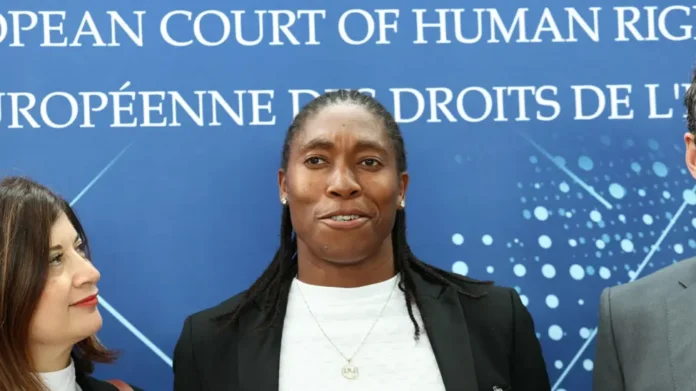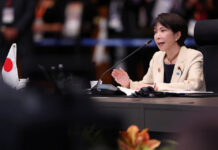By Were Kelly
South African Olympic champion Caster Semenya has secured a significant legal victory at the European Court of Human Rights (ECHR), which ruled that her right to a fair hearing was violated by the Swiss Federal Supreme Court when it upheld athletics regulations barring her from competition.
The Grand Chamber of the ECHR found that Switzerland failed to protect Semenya’s rights under Article 6 of the European Convention on Human Rights, which guarantees the right to a fair trial. The judgment relates to a 2020 decision by the Swiss Supreme Court that denied her appeal against World Athletics’ controversial regulations restricting testosterone levels for female athletes with differences of sexual development (DSD).
“The review by the Swiss court had fallen short of the requirement of particular rigour,” the Grand Chamber declared, highlighting procedural deficiencies in how Semenya’s challenge was handled.
The case, however, did not directly target World Athletics or its DSD regulations but rather Switzerland’s judicial handling of Semenya’s appeal. The ECHR dismissed her claims under Articles 8 (privacy), 13 (effective remedy), and 14 (non-discrimination) on jurisdictional grounds, stating that they did not fall within the Swiss government’s remit in this context.
Though the ruling does not immediately overturn the testosterone-based restrictions imposed by World Athletics—which were expanded in 2023 to cover all female track and field events—it marks a critical legal and moral win for Semenya and other athletes with DSD.
Speaking outside the court in Strasbourg, a triumphant Semenya said,
“This is great for me, great for athletes. It’s a reminder to leaders that athletes need to be protected. Before we can regulate, we must respect athletes and put their rights first.”
Semenya, now 34, is a two-time Olympic champion and three-time world champion over 800 meters. From 2009 to 2019, she dominated women’s middle-distance running, capping her streak with a 30th consecutive win at the 2019 Doha Diamond League.
But her meteoric rise also invited scrutiny. Born with 46 XY 5-alpha-reductase deficiency (5-ARD), a form of DSD, Semenya has elevated levels of testosterone—a trait which athletics authorities argue gives her a competitive edge over 46 XX female athletes.
World Athletics maintains that the testosterone rules are necessary to protect fair competition in the female category. Semenya and her supporters, however, argue the rules are discriminatory, intrusive, and amount to forced medical intervention.
Semenya’s initial challenge to the rules was rejected by the Court of Arbitration for Sport (CAS) in 2019. That ruling acknowledged her biological advantage but concluded that the regulations were “discriminatory but necessary” to maintain competitive balance.
Semenya has since refused to undergo testosterone-reducing treatments, sidelining her from her signature event and prompting her to shift focus from athletics to activism.
In a 2023 BBC Sport interview, she opened up about her biological traits:
“I was born without a uterus. I have internal testicles. But I am a woman and I have a vagina.”
While the ECHR’s ruling does not directly alter World Athletics’ current policy, it may influence future legal challenges and could prompt a review of judicial standards in similar cases across Europe.
The decision could also pave the way for Semenya to return to the Swiss Federal Supreme Court with renewed grounds for appeal.
World Athletics declined to comment on the ruling.
Source: BBC



















